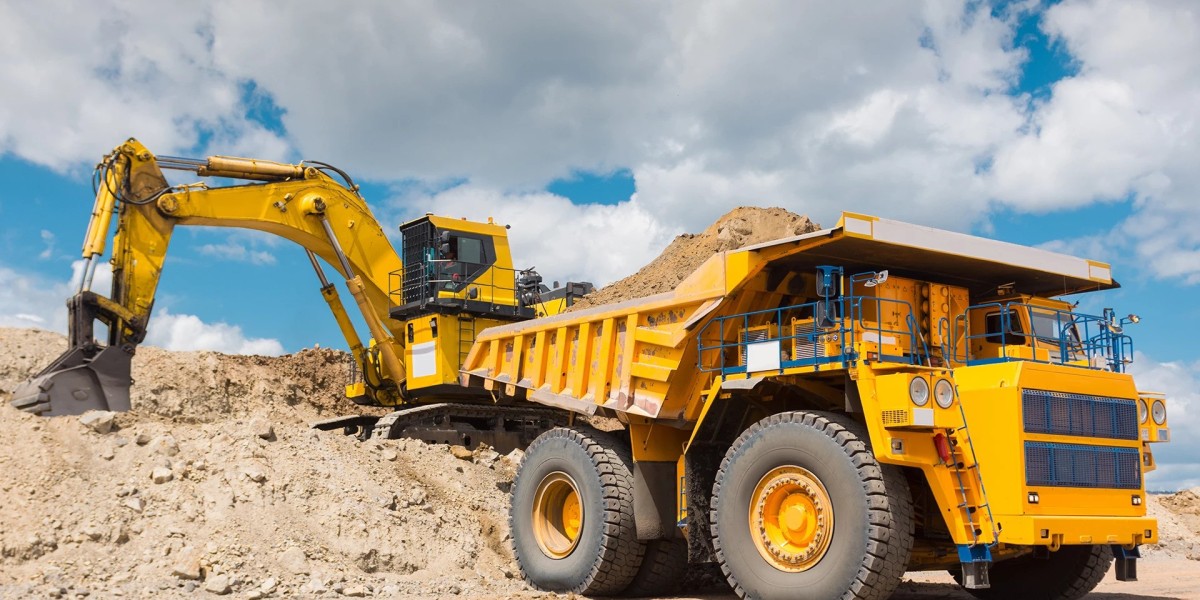Introduction
The construction industry is rapidly evolving, and with it, so are the machines that power progress—especially excavators. If you’ve recently searched for an excavator for sale, you’ve probably noticed how much the market has changed. From traditional diesel-powered workhorses to smart, eco-friendly machines with cutting-edge features, excavators are entering a new era. Whether you’re a contractor looking to upgrade your fleet or a company diving into construction for the first time, keeping up with the latest trends can help you make smarter purchasing decisions and stay competitive.
So, what does the future hold for excavators? Let’s dig into the biggest innovations transforming these essential machines.
1. Electrification is on the Rise
As the world pushes toward sustainability, electric excavators are gaining traction. Manufacturers are investing heavily in battery-powered models that deliver the same performance as their diesel counterparts—without the emissions. These eco-friendly machines are perfect for urban construction, indoor projects, and areas with strict noise or pollution regulations. While battery life and charging infrastructure still have room for improvement, the future is clearly electric.
2. Automation and AI Integration
One of the most exciting trends is the rise of autonomous excavators. Using advanced sensors, GPS, and AI-driven software, some excavators can now perform basic tasks with little to no operator input. Think grading, trenching, and digging—done with pinpoint accuracy. Automation not only boosts efficiency but also minimizes human error, improving safety on job sites. As AI technology advances, we can expect more excavators that learn from operators and adapt to different conditions automatically.
3. Remote Operation Capabilities
Remote-controlled excavators are becoming increasingly popular, especially in hazardous environments. These machines allow operators to control the excavator from a safe distance using a console or even a smartphone app. This innovation is particularly useful in disaster zones, mining, or demolition work where safety is a top priority. With faster internet speeds and 5G technology rolling out globally, real-time control and monitoring are more reliable than ever.
4. Data and Telematics
Modern excavators are smarter than ever. Telematics systems now provide real-time data on machine health, fuel usage, location, and productivity. This data helps operators and fleet managers optimize performance, schedule preventative maintenance, and reduce downtime. It also allows businesses to make data-driven decisions, saving money and increasing overall efficiency.
5. The Role of Machinery-Net in Modern Equipment Buying
As the technology in excavators continues to advance, finding the right equipment can feel overwhelming. That’s where Machinery-Net comes in. It’s a leading online marketplace for purchasing new and used machinery, including a wide variety of excavators. Whether you're looking for the latest electric model or a dependable used machine, Machinery-Net allows you to compare options from trusted sellers all over the world. With detailed specifications, user reviews, and transparent pricing, it simplifies the entire buying process. For anyone serious about staying ahead in the machinery game, Machinery-Net is a go-to resource.
6. Hybrid Excavators
Another trend shaking up the industry is the development of hybrid excavators. These machines combine diesel engines with electric motors to improve fuel efficiency and reduce environmental impact. Hybrid systems can significantly cut operating costs while maintaining high levels of power and performance. As fuel prices fluctuate and regulations tighten, hybrid excavators offer a practical middle ground for many companies.
7. Compact and Versatile Designs
Space is often limited on modern job sites, especially in urban settings. That’s why compact and mini-excavators are growing in popularity. Manufacturers are designing smaller machines that can still deliver powerful results. These models are easier to transport, more maneuverable in tight spaces, and ideal for residential or small-scale commercial projects.
Final Thoughts
The future of excavators is more innovative, efficient, and intelligent than ever before. From electrification and AI to remote operation and advanced data tracking, these machines are redefining how we think about construction equipment. If you’re browsing the market for an excavator for sale, now is the perfect time to explore your options and embrace the new wave of technology. And with platforms like Machinery-Net offering a wide range of modern machines and tools to match, staying ahead of the curve has never been easier. The future is bright—and it’s built by the bucket-load.







